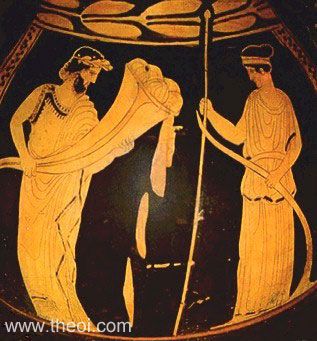With my head steeped in early mythology, and in particular the stories by which Athens imagined itself “born of the earth,” Thanksgiving has snuck up on me once again. It does that.
Indeed, one of the interesting aspects of founding narratives is the way in which they repeat themselves. Founding, it seems, is never over, but is a yearly affair, to be marked by ritual. We should not be surprised, then, if these repetitions become interwoven with themes of agrarian abundance. Humans, it appears, are not the only things born of the earth.
But isn’t there a fundamental difference between Athens and America? Athens prided itself on being the only city who’s citizens did not come from somewhere else, but emerged in place. But is not America the story of the frontier, of the intrepid journey?
But what if the only way to be born of the earth is to also go on a journey? The Athenians would not cease to enact their emergence out of the earth by going to their border and back. The cavernous wombs of the earth are not just down, but also out, deep in the mountains at the edge. But likewise where is a pious European to go to begin again, to start fresh, if not to the frontier? Never mind that the frontier was veritably teaming with not only American Indians, but by the time of “Plymouth Rock” also any number of other settlements, utopian or otherwise.
What makes Thanksgiving the essential founding myth is its ability to cleave through all of the competing narratives, providing the visual substrate for articulating a vision of a moral and political origin. The abundance of the feast of Thanksgiving serves as divine validation of this essential beginning.
Nowhere is this motive more embarassingly obvious than in John Garraty’s American History. “So far as any record shows, this was the first time in human history that a group of people consciously created a government where none had existed before.”1
Such is the forgetfulness at the heart of any attempt to recall origins.
As critical as it is to hash out the way in which this is treated as curriculum—as if we could simply swap out histories—what would remain to be seen is how central this narrative is to our educational dreams.
————————–
1. James W. Loewen, Lies My Teacher Told Me, 83.
